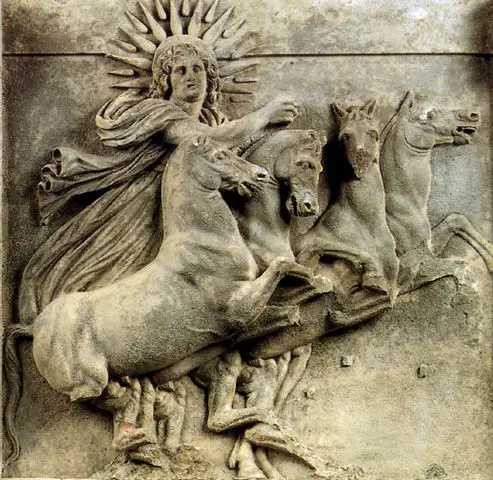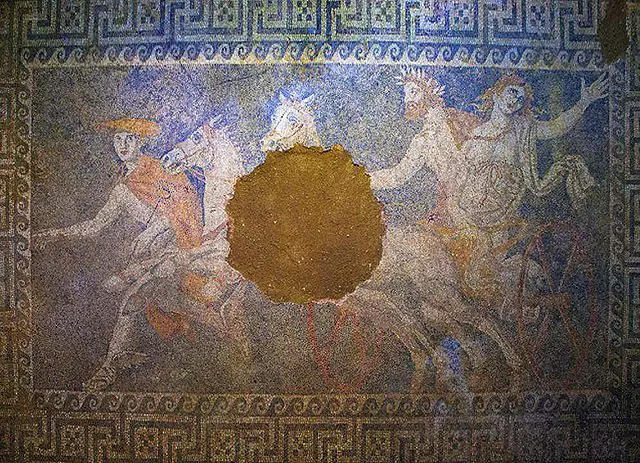| Further Reading | The 4 Most Important City-States Of Classical Greece |
Ancient Greece developed differently from the rest of the ancient world. There are 3 reasons why ancient Greece would be divided up across several large City-states and not one government. Each of these city-states would form their own smaller government with their own culture and economy.
There are 3 reasons why ancient Greece was divided up across several large city-states throughout its history. First, the topography of ancient Greece formed lots of mountains that naturally created population clusters. Second, Greece does not have much farmland and as such populations would be centered around rivers and flat areas. Third, multiple migrations of people over time would prevent one government from forming.
Here at The History Ace I strive to publish the best history articles on the internet. If at the end you enjoyed this article then consider subscribing to the free newsletter and sharing around the internet.
Without further ado, here are the 3 reasons why ancient Greece was divided into City-States.
The Topography Of Ancient Greece Formed Lots Of Mountains That Naturally Created Population Clusters
One of the main reasons why ancient Greece was divided into city-states was because of the extremely mountainous terrain.
When you travel to Greece you will notice just how many mountains there are. These mountains were formed millions of years ago. By the time that humans reached these mountains they began to form settlements in the valleys.
Ancient city-states such as Athens or Sparta are located near fresh water streams that come from the mountain tops. There are very few places in or around ancient Greece where there are large flat regions where people can easily settle down.
As a result of this overtime villages would turn into cities. These city-states never became unified unlike other parts of the world due to the extreme mountainous regions.
Even though ancient Greek city-states might only be 30 miles away from each other it would take several days to traverse the mountains. This was especially true if you were taking goods to be exchanged or traded.
Further, because of these mountains it was also easier for city-states to defend their boundaries. Because of this it was hard for even the most powerful city states such as Sparta to invade and capture smaller city-states such as Thebes.
As a result of this ancient Greece would become divided into several small city-states instead of one large population controlled by a government.
Greece Does Not Have Much Farmland Which Helped To Further Cluster Populations
One of the main reasons why ancient Greece was divided into several city-states was because of a lack of arable land.
Greece is a land of mountains, rocks, and water. Outside of some few spots there is almost no farmland. In fact Greece today only has around 20% of its total land mass as capable of sustaining crops with only 9% being year round crops. However, this 20% is using today’s modern farming technologies. In ancient Greece there was almost no land where people could easily grow crops.
Because of this most people in ancient Greece resorted to raising small animals for husbandry products along with fishing. These were animals such as cows, goats, and in some cases horses.
The city-states held a near monopoly on farmland. Sparta alone held one of the few arable spots in the entire Peloponnese peninsula, which helped Sparta grow to a massive size.
Athens on the other hand would supplement its population’s food intake with colonies around the Mediterranean and black seas. Here an advanced maritime city-state would have constant grain ships coming and going from Athens.
However, because of the lack of arable farmland across the whole of Greece city-states would being to form and dominate regional politics. While trade was important between the city-states it would be nearly impossible for Greece to become one large nation during antiquity. There simply was not enough food to support the whole population spread across the landmass.
As such one of the main reasons why ancient Greece was divided into city-states is because of a lack of farmland spread across Greece. The city states are located in the most fertile areas which helped to control their independence.
Multiple Migrations Of Different People Would Create Small City-State Settlements
One of the main reasons why ancient Greece was divided up into city-states is because of the massive migrations of people to the region all with their own individual culture.
While all the Greeks today can be grouped into the one group called the Hellenes this is a modern concept that did not exist in ancient Greece. During the formation of Greek city-states there were four major groups of people.
First, there was the Aeolians. These were one of the first inhabitants of northern Greece. They were known to speak a faster Greek dialect called Aeolic which was known across ancient Greece for being crude and fast. The Aeolians would form their own city-states which held its unique culture.
Second, there was the Achaeans. This ancient Greek tribe came from the northern Peloponnese peninsula and was known to colonize the western Islands of Greece and part of southern Italy. The Achaeans would lose power in the Peloponnese peninsula after the ‘Doric invasion.’
Third, There were the Ionians. This ancient Greek group of people were known as studiers of knowledge, technology, and art. They would eventually found the city-state of Athens. Today much of what we call ‘Greek’ culture comes from Ionian culture mixed with pieces of Doric.
Fourth, There were the Dorians. The fourth ancient Greek group is the Dorians. Nobody knows where they came from and ancient sources claim that they came from the mountains in the north to eventually settle on and dominate the Peloponnese peninsula. The Doric language is widely different from other Greek languages and it is believed by oral history to have originated in north-west Greece. One of the most famous Dorian city-states is Sparta or Corinth.
These cultures were completely different from one another. Because of this ancient Greece would begin to form several city-states across its landmass.
As such one of the main reasons why ancient Greece was divided into city-states was because of the widely different cultures in Greece.
Conclusion
There you have it; an entire article dedicated to the 3 reasons why ancient Greece was divided into city-states.
Here at The History Ace I strive to publish the best history articles on the internet. If you enjoyed this article then consider subscribing to the free newsletter and sharing around the web.
Further, you can check out some of the other articles below.
-
How The American Revolution Changed The World

Here is how the American Revolution changed the world. Many people are not aware of just how important this event actually was.
-
Why The Roman People Loved Chariot Racing

Why did the Roman people love chariot racing? Well it all comes down to these 3 reasons.
-
The Design and Color of Roman Chariots

What was the design and color of Roman Chariots? Were they faster or slower then normal chariots? Well here is everything!
Sincerely,
Nick